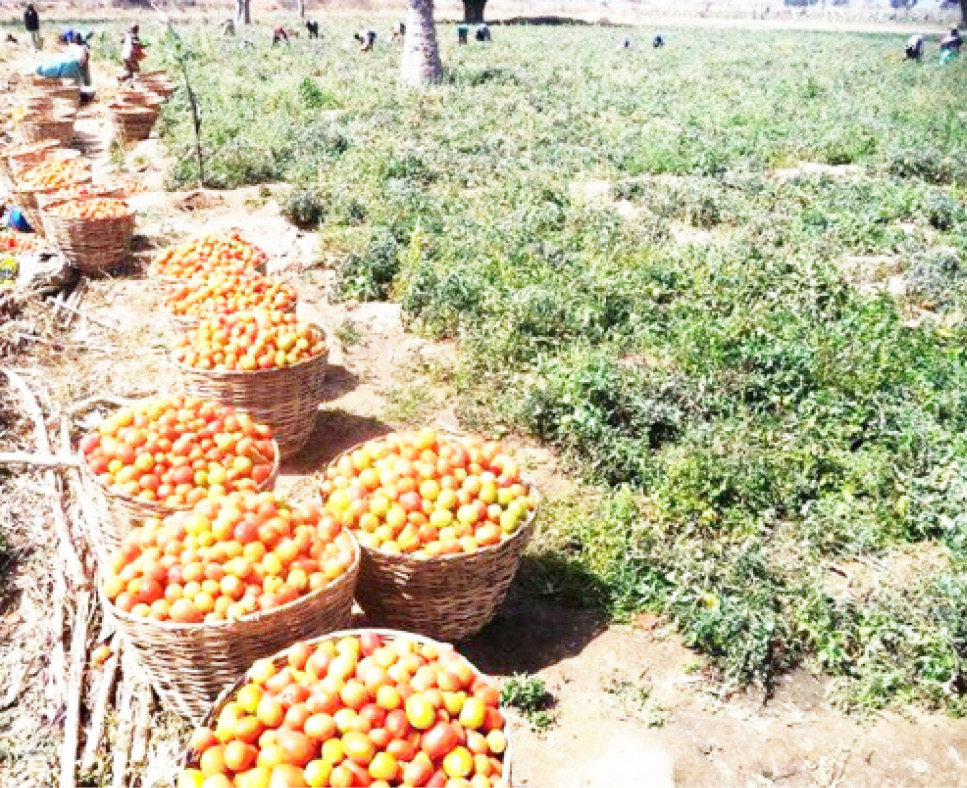…as Kadawa farmers relocate
Tomato farmers in Kano State are expressing fear that tomato price may skyrocket this season due to the closure of Tiga Dam, the major source of irrigation water to about five local government areas that produce tomato and other perishables in the state.
The farmers claimed that the closure, which commenced on November 1, 2021 and will last till March 31, 2022 has negatively affected farming activities especially during this year’s dry season as vast hectares of land have been left untended due to lack of water.
Daily Trust gathered that many tomato farmers have relocated to other places where they could get land close to sources of water to grow tomatoes.
It was also revealed, however, that even those that have gotten land to produce couldn’t produce much due to lack of adequate space.
According to Mansur Bello Seemon of Yan Kaba vegetable market, the market now receives its tomato supply from Zaria in Kaduna State and some parts of Katsina as Kano State tomato was yet to get to the market.
A market survey showed that a big basket of tomatoes which was sold at N3,100 in last year’s dry season in the market is now sold at N10,200.
“Last year, tomatoes were everywhere in this market, but since the closure of Tiga Dam, we have been getting our tomato supply from Katsina and Zaria.
“However, as you can see, the basket is now selling at N10,200 and all indications are showing that tomatoes will be very expensive this year,” said Seemon.
It was revealed that tomato farming activities at the over 22, 000 hectare irrigation site in Kadawa, have been relocated due to lack of water.
Investigation revealed that some of the farmers have moved closer to some water sources at the bank of Kano River to clear land and farm tomato.
The state chairman of Tomato Out Growers Association of Nigeria (TOGAN), Alhaji Sani Danladi Yadakwari, said tomato farmers have used less than 10 per cent of the total land for growing tomato at Kadawa irrigation site due to the dam closure.
He added that tomato farmers in the state are indeed in a serious problem which, he said, would lead to tomato scarcity and price hike.
“Due to the dam closure, some of our members managed to clear some areas around the bank of River Kano to produce tomato, but this is less than 10 per cent of what we used to do at Kadawa irrigation site. For instance, during last year’s dry season, I cultivated 15 hectares, but I was only able to cultivate four hectares this year,” said Yadakwari.
Another tomato farmer, Malam Abdullahi Garba, said he and many of his colleagues couldn’t grow tomatoes this year.
He said due to the closure of the dam, they couldn’t get another place to farm, adding that tomato consumers in the state and across the nation have to exercise patience because there is every indication that tomato prices will go up.
Meanwhile, the custodian of the dam, Hadejia Jama’are River Basin Development Authority (HJRBDA), has maintained that the decision of the management to close the dam was because the dam it was in dire need of repairs.
According to the agency’s Public Relations Officer (PRO), Malam Salisu Baba Hamza, there are very important reasons behind the authority’s decision to close the dam 100 per cent.
He explained that the repair is in line with the Transforming Irrigation Management in Nigeria (TRIMING) which is a World Bank-funded project to implement the rehabilitation of the Kano River Irrigation Scheme (KRIS) and Hadejia Valley Irrigation Scheme (HVIS).
He added that before the closure of the dam, HJRBDA, farmers associations, Water Users Association (WUA) in the state and the management of TRIMING met and agreed on the timing for the closure.
He, therefore, expressed surprise that the farmers are now complaining.

 Join Daily Trust WhatsApp Community For Quick Access To News and Happenings Around You.
Join Daily Trust WhatsApp Community For Quick Access To News and Happenings Around You.


